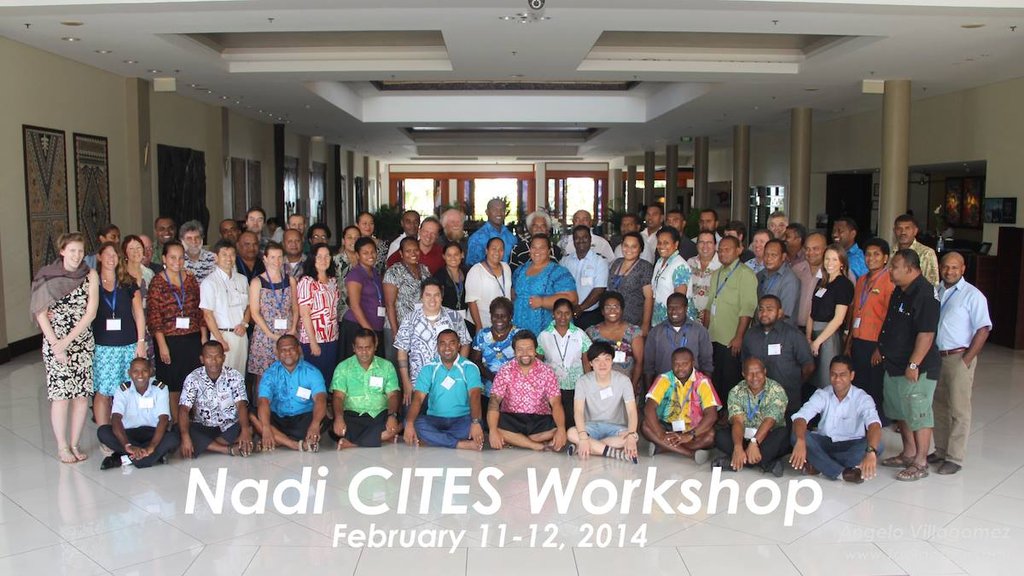By Juliane Diamond | Program Manager
On February 11 and 12, 2014, in Nadi, Fiji, The Pew Charitable Trusts, CORAL, and the Fiji Government hosted the Oceania Follow-up Regional Workshop on the Implementation of CITES Appendix II Shark Listings. With representatives from 11 countries in the Pacific and over 60 participants and observers, significant progress was made toward ensuring these newly listed species–oceanic whitetip, scalloped hammerhead, great hammerhead, smooth hammerhead, the porbeagle shark, and two species of manta rays–achieve the protection they desperately need.
The workshop kicked off in traditional Fijian fashion with an opening welcome from Mr. Samuela Namosimaluaa, Permanent Secretary for Local Government, Urban Development, Housing and Environment, as well as with a video message from the CITES Secretary General Mr. John Scanlon. The panel included Imogen Zethoven, Director of Global Shark Conservation for The Pew Charitable Trusts acting as Chair of the meeting; Mr. Aisake Batibasaga, Principal Fisheries Officer for Fiji; Colin Simfendorfer Director of the IUCN Shark Specialist Group; Shaneen Coulson, CITES Scientific Authority of Australia; and Hugh Robertson, CITES Scientific Authority of New Zealand. Speakers also included Stan Shea—an expert in the shark fin trade in Hong Kong, Ian Freeman from the Pacific Islands Forum Fisheries Agency (FFA), and Lindsay Chapman from Secretariat of the Pacific Community (SPC).
All of these speakers assisted in familiarizing participants with the context of these new listings and on the details of how to ensure they are implemented properly. But one presentation stole the show (and the fresh air from the room). Dr. Demian Chapman, aka the ‘”fin Doctor,” as he was aptly nicknamed after his demonstration, ensured that all attendees were familiar with how to identify the fins of these species. His hands-on approach involved displaying dried fins on all of the tables around the room, providing a very fragrant and visual reference.
Overall, the two-day workshop was filled with thoughtful questions and productive strategic planning. But most importantly, this meeting gave all of the CITES parties in the region the opportunity to convene and discuss what needs to be done regionally in order for the new listings to be effective. Some key conclusions that spanned the region were:
These conclusions will ideally translate into action on the ground, including a plan to address gaps in data, as well as a strategy for enforcement to be put in place prior to the September 14, 2014 implementation date.
CORAL looks forward to working with our partners in Fiji to ensure that the government is equipped and prepared to make the most of these landmark listings—which have the potential to significantly reduce shark mortality not only in the Pacific but around the world.
Project reports on GlobalGiving are posted directly to globalgiving.org by Project Leaders as they are completed, generally every 3-4 months. To protect the integrity of these documents, GlobalGiving does not alter them; therefore you may find some language or formatting issues.
If you donate to this project or have donated to this project, you can receive an email when this project posts a report. You can also subscribe for reports without donating.
Support this important cause by creating a personalized fundraising page.
Start a Fundraiser